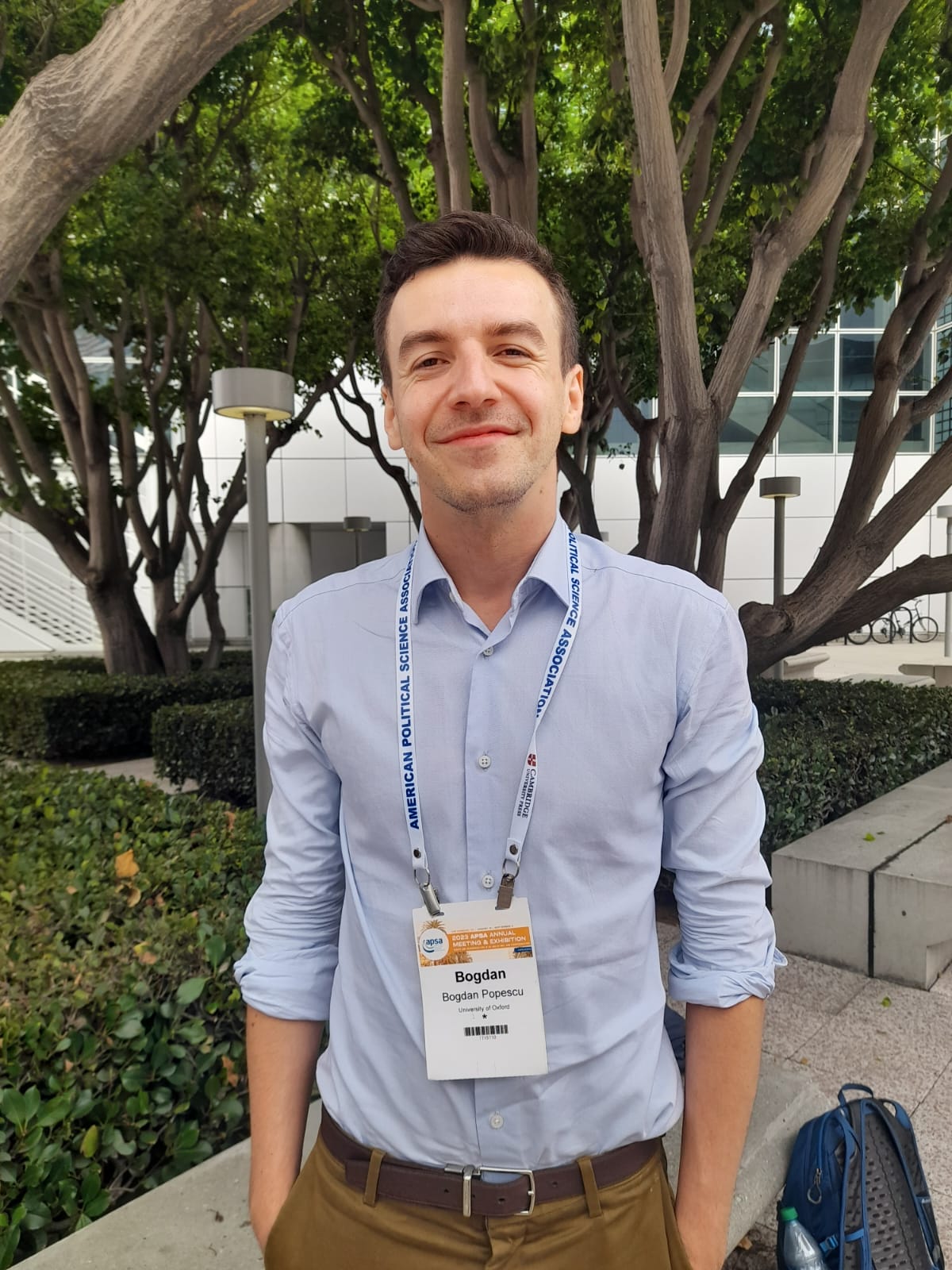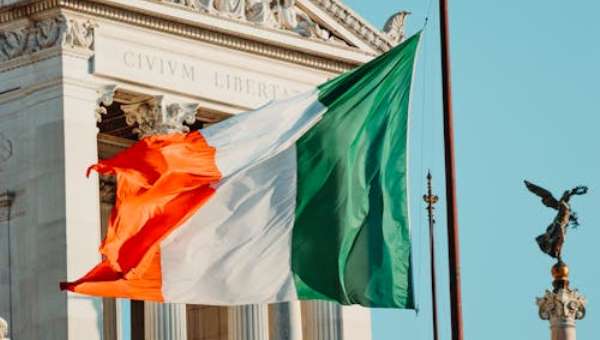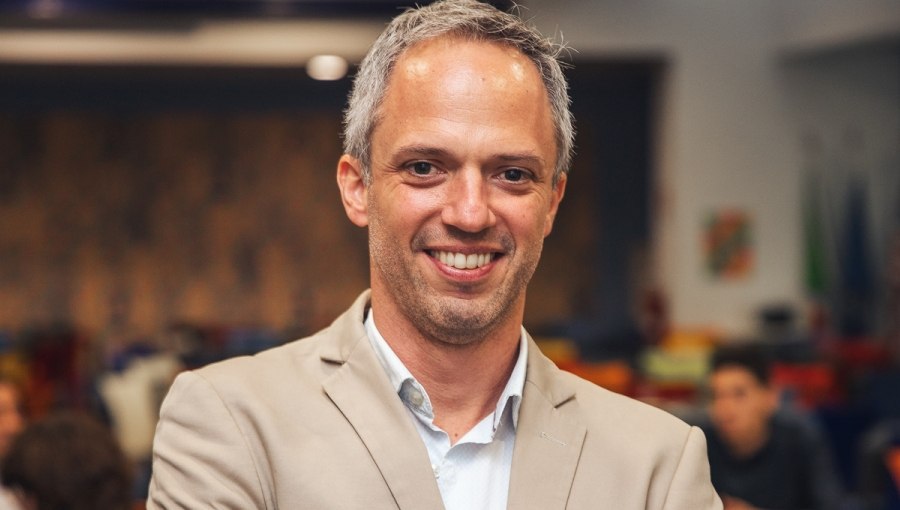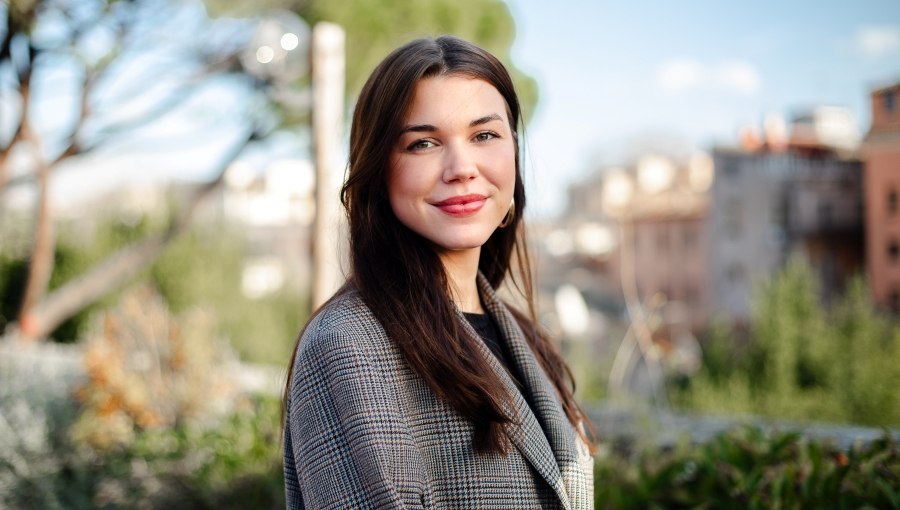Unpacking Politics and Digital Humanities: Professor Bogdan Popescu
Born in Romania, Professor Bogdan Popescu joined JCU’s Department of Political Science and International Affairs in Spring 2023. He holds a Ph.D. in Political Science from the University of Chicago and held postdoctoral positions at Princeton University and Università Bocconi in Milan, and was a lecturer at the University of Oxford. Professor Popescu teaches Comparative Politics, Globalization, and Statistics.
Tell us about your research interests. What projects are you currently working on?
I study borders and how states govern peripheries. In my first book Imperial Borderlands (Cambridge University Press, 2023), which will be published in November, I examine the institutions that the Habsburg Empire developed in its border areas and their long-term effects on economic development and access to public goods. The project allowed me to uncover historical censuses and maps and to bring them back to life using digital humanities tools. Overall, the project offers new insights into how states govern borders, the types of institutions governing such spaces, and the consequences for the lives of people living these areas and their descendants. I have published various articles in leading political science journals that discuss the notion of periphery in a broad sense.

I am currently working on an article about the peripheries of the Industrial Revolution. I investigate how migration during the Industrial Revolution in the Northern cities of England led to a change in language that today is far from the state capital’s language. I argue that the state had limited incentives to assimilate migrants in the industrial towns, with many of them working in factories and with limited opportunities for public education to learn the state’s language. This project allows me to use granular historical data to provide interdisciplinary insights into how state practices result in linguistic changes.
The editors of Comparative Political Studies recently awarded you the Caporaso Best Paper Award. Congratulations! Please tell us about your paper.
Thank you! I am humbled that the editors of Comparative Political Studies awarded me and Mircea Popa (University of Bristol) the James Caporaso Award for the best paper published in Comparative Political Studies in 2022 for “Imperial Rule and Long-Run Development: Evidence on the Role of Human Capital in Ottoman Europe.” This constitutes the topic of my second book project, which revisits the Great Divergence between the Middle East and the West. Many scholars focus on how Islamic institutions impacted development by examining the spaces inhabited by Muslims. They typically make this point by focusing on the Ottoman Empire – the leading polity that governed vast European territories for over five hundred years. Yet, many Islamic Empires, including the Ottomans, consisted of regions inhabited by non-Muslims where many of the Islamic rules did not apply. For example, it is estimated that around the 1800s, about 45% of the Ottoman imperial population was Christian or Jewish. Thus, it is less clear how Islamic rules were applied to non-Muslim populations.
In the book project and the article, I focus on a critical aspect that affected both Muslim and non-Muslim populations: the limited availability of the printing press. Specifically, the delay in adopting the printing press meant that books remained expensive and not readily available. In addition, areas where the press was adopted later also had lower literacy rates in the 19th century. To illustrate the connection between the printing press and literacy, I digitized various censuses from Southeast Europe and revisited historiographical accounts discussing potential bans on the printing press under the Ottoman Empire.
What is your teaching philosophy? What would you like students to take away from your classes?
I strive to teach undergraduate and graduate students the theories, concepts, and methods of political science that make its study exciting. In my courses, I teach students transferable skills, including evidence-based strategies for effective learning to ensure information retention, and time and stress management. I would also like my students to leave the course with the idea that learning does not stop in the classroom and that it is a life-long journey. A university education only provides a basic framework and system for retaining and grasping information. Therefore, I encourage my students to continue their pursuit of knowledge outside of the classroom and to develop a passion for learning driven by intellectual curiosity.
What advice would you give to students studying Political Science, and who wish to pursue a career in this field?
Through my teaching, I strive to teach students different political science topics that demonstrate this field’s diversity, including international relations, comparative politics, political theory, and public administration. I advise students to develop strong analytical and critical thinking skills to analyze problems, evaluate arguments and propose informed solutions. Political Science often involves the analysis of complex issues, policies, and data, and it is essential to stay updated on domestic and international events. Reading newspapers, academic journals, and reliable websites will help understand the evolving political landscape. Political Science involves a lot of writing, from research papers to policy briefs. Practice writing effectively, clearly, and persuasively. That is why it is important to take writing assignments seriously and use them as opportunities to hone one’s writing.
You started teaching at JCU in Spring 2023. What’s your impression so far?
I have had an incredible experience so far. I love that JCU is situated in the historic Trastevere neighborhood of Rome, providing staff with a unique opportunity to work in the heart of the Eternal City. It is quite a treat to pass by the Colosseum, or the Vatican daily. I don’t think many people can say that about their daily commute to work.
Having worked in Milan and Oxford, I am happy that JCU follows the American higher education system, as it is less bureaucratic and more conducive to academic freedom. This allows me to pursue the research questions that interest me and inspire my students to develop the same curiosity. I also like that the University attracts a diverse student body, with students from many countries, thus contributing to a rich and multicultural learning environment.
Anything you’d like to add.
I am thrilled to have the opportunity to be an Assistant Professor of Political Science at JCU, and to have the chance to share my enthusiasm for teaching and research using interdisciplinary approaches from political science, history, and computer science. I am very happy to teach at an institution that combines the best qualities of an American liberal arts college with Rome’s history and cultural heritage.





